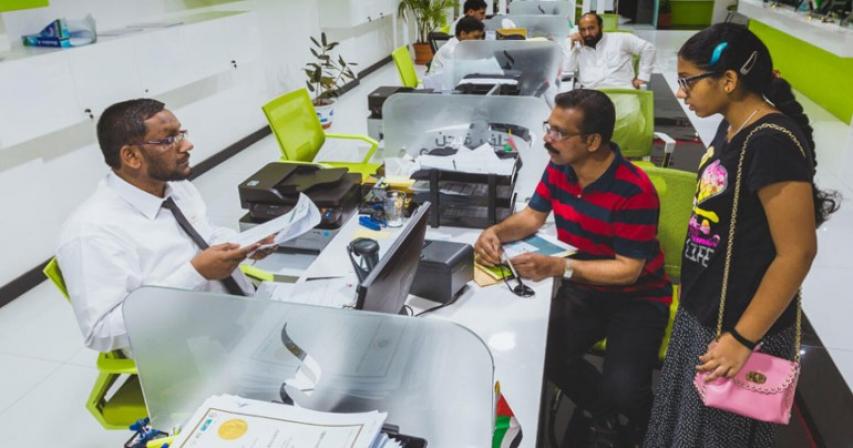UAE typing centers hire staff for visa amnesty

Thousands of expats are rushing to immigration centers. They're looking to fix their status with the UAE's current amnesty scheme. This influx causes a boom in applications. With this boom comes more work for the centers. This has led to changes in how they run. To make things run smoothly and effectively, they've had to hire extra people.
They're even taking steps to make sure the workflow is streamlined. I visited a few centers. There, I saw staff working hard to help all those seeking amnesty. Extra hours have been added to employees' schedules. On top of that, team members from other centers have come over to lend a hand. All this work is to keep the amnesty moving along without any slowdowns.
Meet Masiuddin Mohammed. He's part of the Quality Government Service Centre, right here in DIP 1. Did you know they've recently bumped up their staff numbers? Yep, they've had to, thanks to the swell in folks asking for amnesty. "In the beginning, we were just eight, managing everything," Mohammed revealed. "But, the sudden wave of amnesty requests meant we needed more hands. We're now a team of 13!"
He told us that some are part-timers, spending extra hours to accommodate the surge after finishing up at other centers. With over 200 amnesty applications coming in daily, it's a necessary step to keep things moving smoothly. "On busy days, we find ourselves dealing with more than 200 requests,” Mohammed shared. "But, some people, they get sent to Al Awir’s tent when their fingerprints are missing from our system," he added.
"Because it's so busy, we're even open on Sundays to help as many folks as we can. It's a non-stop job handling all these people." The forgiveness plan gives people who stayed past their visas a chance to fix things without punishment. It's led to masses of expats who overstayed, finding help at typing places and immigration desks all over UAE.
Hani Ibrahim of Karama Medical Fitness Centre in Karama retells a similar situation. The centre has also experienced a sudden rise in applications which led them to hire more workers to maintain productivity. "Before the amnesty, our team consisted of 11 members," shared Ibrahim.
"However, just two days into the amnesty program that started on September 1, we saw a higher demand for staff. Therefore, we brought in more help and are now proudly sustaining a total of 16 employees at the centre." Ibrahim noted that the centre takes on more than 300 amnesty applications every day.
This has resulted in extended office hours and an enlarged workload for the team. "Given the surge in applications, our staff often needs to extend their shifts. Statistically, one executive now manages well over 20 applications a day," stated Ibrahim.
"Numerous people seeking amnesty are also returned as they lack fingerprint registration in the GDRFA system, causing delay in their process," Ibrahim said again.






Comments